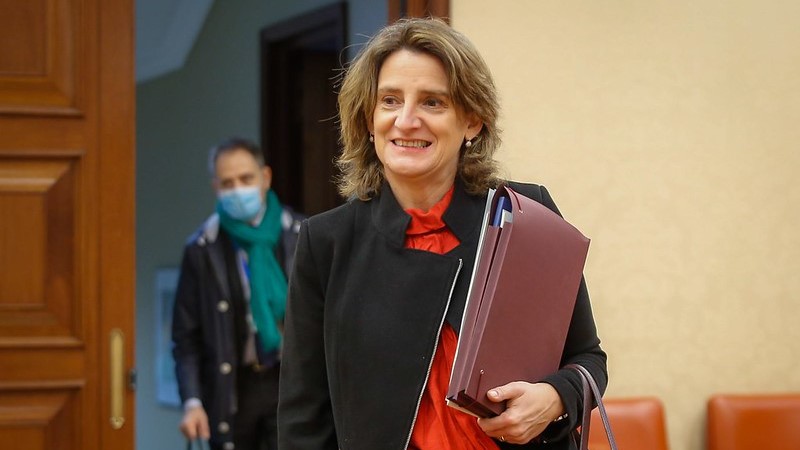
The Spanish government is due to present an ambitious draft law to cut the country’s carbon emissions to net zero by 2050 to Parliament on Tuesday.
Spain joins a handful of countries to have set out a legal binding strategy to end their contribution to global heating in the next 30 years.
The draft text, which follows a public consultation started in February 2019, sets the direction of economic recovery from the coronavirus pandemic.
“We would like to have presented this law in other conditions, several weeks ago,” said Spain’s vice president Teresa Ribera, who serves as the minister for the ecological transition, adding the draft bill had to be “a useful guide” to shape the recovery effort.
“This law offers us an incredible opportunity to debate about the country that we want to be,” she said.
Under the law, which still needs to be approved by Parliament, the government is pledging to make Spain’s electricity system 100% renewable by the middle of the century, ban all new coal, oil and gas extraction projects with immediate effect, end direct fossil fuel subsidies and make all new vehicles emission-free by 2040.
To reach its 2050 goal, the government has proposed interim targets through its national energy and climate plans to 2030.
By 2030, the government pledged to reduce emissions 23% from 1990 levels and double the proportion of renewable sources in total energy consumption to 35-42% — an objective it described as consistent with the EU bloc-wide target to cut emissions 50%-55% by 2030.
To do so, clean energy sources will need to make up at least 70% — striving for 74% — of the electricity mix in the next 10 years and efficiency measures will need to reduce energy consumption by at least 35%, primarily through the renovation of buildings and homes.
Guest post from Climate Home News





